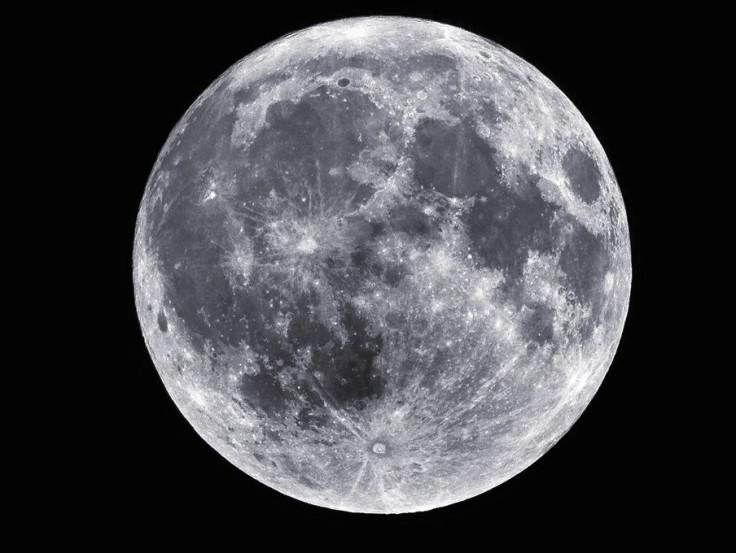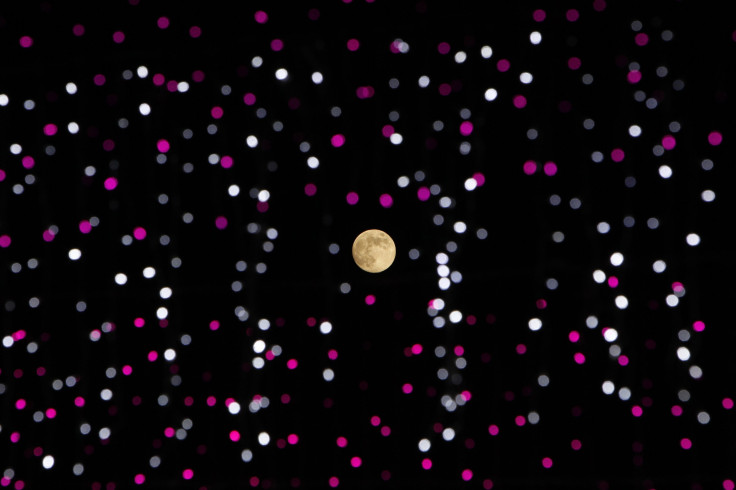Full Moon During Mercury Retrograde June 2015: What To Expect

The moon is going to be full on Tuesday, June 2, coinciding with Mercury Retrograde. All around the world, people will brace for strange events and streets filled with "lunatics." But is there any substance to this idea that during the full moon, emergency rooms are fuller, police officers are busier, animals go cuckoo, and lunacy ensues?
Scientists do a full eye-roll about this centuries-long belief in strange events and behaviors tied to phases of the moon. "Lunaticus," which means “of the moon” or "moonstruck," had its peak popularity in the late 1800’s, according to Universe Today. If you think the closer and fuller the moon, the more our "humours" are up, hence the nutty behavior, you're wrong, writes Fraser Cain. "[O]ur Moon travels an elliptical orbit, and the time when the Moon is closest has nothing to do with when it’s full."
"Reliable studies comparing the lunar phases to births, heart attacks, deaths, suicides, violence, psychiatric hospital admissions and epileptic seizures, among other things, have over and over again found little or no connection," writes Robert Roy Britt at Live Science.
But Britt does concede that there might be a plausible -- if indirect -- connection between full moons and odd behavior. Before there was modern lighting, the full moon's light disrupted people's sleep and kept them up, leading to insomnia and increased activity outside. And you know that saying, "Nothing good happens after midnight..."
But just in case you're already feeling the effects, a little advice from astrologers on what to expect during the full moon in Mercury Retrograde couldn't hurt, right?

Be optimistic: The full moon is in Sagittarius: “Sagittarius is the sign of optimism, vitality, and good intentions. Anything started during this time period will be supported by the good fortune of this sign. "
Don't worry about the full moon in Mercury Retrograde: "We are asked to feel instead of think, to follow our hearts—wherever it may lead us. In this case, Sagittarius is there letting us know we are on the right track."
The combination of Mercury, Venus, and the full moon brings attention to past loves: “For the next few weeks you may find yourself inexplicably drawn to an old flame—go with it...starting new things isn’t recommended during a retrograde—getting together with an old love from our past is.”
Be wild: “ When the moon is in Sagittarius we all are being inspired to embrace our free spirit and our desire for freedom. Embrace your wildness.”
Express yourself: "What if you opened up a space for something more authentic? What if you express something that ends something, and someone doesn’t like it or you? Then you’re free. It’s a win either way."
Lighten up: With the full moon in Mercury Retrograde, “[Y]ou need a sense of humor. Don’t try to make it work.”
And Katie Sweetman, a New York City-based astrologer and blogger for Empowering Astrology, answered our questions about full moons and Mercury Retrogrades:
Background on Mercury Retrograde and the full moon: The full moon and Mercury Retrograde are two separate things. Mercury Retrograde refers to a time when Mercury appears to travel backwards in the sky. This is an optical illusion based on differences in orbital speeds. It happens three, sometimes four times a year. After the Sun and Moon, Mercury is the swiftest moving body in the heavens, traveling around the Sun every 88 days. Astrologically it's considered an inauspicious time to start something new or make a commitment and a time better suited for reflection and reworking or revising.
Full moons: The full moon happens every 28-29 days. It is the apex of the lunar cycle that begins with the new moon. So the new and full moon are actually pretty common events, occurring every two weeks, the new followed by full and so forth. The Moon represents a different rhythm of timing — as opposed to the solar day/night rhythm. There are still cultures that use the lunar calendar over the solar calendar.
Is it rare to see a full moon in Mercury Retrograde? It's not uncommon for the full moon to occur during Mercury Rx. If you think about it, if there's a full moon every month and if Mercury Retrograde happens 3 to 4 times a year, there will likely be a few times year when the two coincide. Mercury Retrograde does not generally intensify the effects of the full moon unless the full moon is in a Mercury ruled sign (Gemini or Virgo). Tomorrow's full moon is in the sign of Sagittarius in tropical astrology, a Jupiter ruled sign.
What should we watch for during a full moon? During the full moon, it's a time when emotional energy is heightened. Ask any cop or ER nurse and they will say that things get a little crazy around the full moon. In astrology, full moons are triggers. We may make a decision, take action, or see something bear fruit in our lives. (In contrast, the new moon is a time to plant seeds or start a new chapter.) If the full moon is directly aspecting something in a persons's natal chart, the days around the full moon may spark an event in his or her life.
The full moon is in Sagittarius. What does this mean? Sagittarius is faith, wisdom, religion, higher education, publishing, foreign travel, and the quest for truth. So the full moon will highlight these themes in our lives and we will see them highlighted in the media as well. We may decide to go on a journey, go back to school, or publish our ideas. World events may point a finger toward faith, religion, and belief.
This is actually a dynamic full moon because of the planetary aspects its making. It opposes Mars, the Sun, and Mercury. There's an in-your-face quality to this full moon because of Mars. We may have our ideas or faith challenged. We may feel incited to go on a crusade of sorts or defend what we believe in. Jupiter, the ruler of the full moon, makes an aspect to Uranus. Our ideas and beliefs are cutting edge, they awaken others, or they are ahead of their time. The full moon also makes a hard aspect to Neptune, so there's a theme of loss, surrender, compassion, and forgiveness.
© Copyright IBTimes 2025. All rights reserved.






















